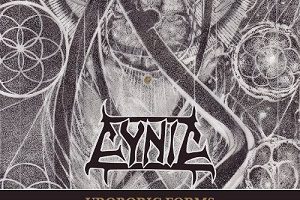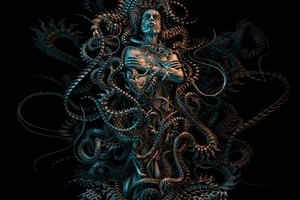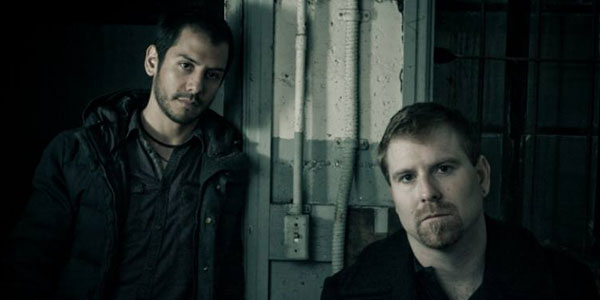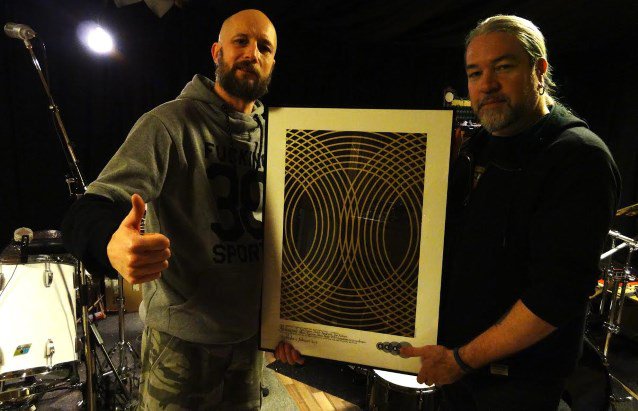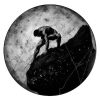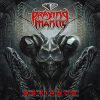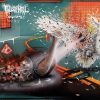Outcast – Reasons Being
Sunday, 31st March 2013
(This content originally appeared on Blistering.com)
Pay no mind to their relatively banal name – France’s Outcast (not to be confused with the American hip-hop group OutKast) are a beacon of light in the fast-fading djent scene. In fact, even calling these lads “djent” might be a direct insult to their kinetic brand of progressive metal that melds None-era Meshuggah with jarring technical bits and flighty melodies. On their second full-length Awaken the Reason, Outcast creates enough real estate for themselves to go in any direction they please, as evidenced by excellent tunes like “Man’s Last Failure” and “Fallen Years,” both of which exemplify a band with far more intangibles than their genre tag association would allow.
With some significant buzz and critical hype forming around the band, we snagged guitarist and founding member Nicolas Soulat for a round of queries regarding Outcast’s slow rise from French metal obscurity to where they are today – on the cusp of becoming the next Textures. Read on and enjoy…
Blistering.com: You formed in 1998, but things really didn’t start to happen for you until 2002 or so. Can you describe some of the struggles you went through?
Nicolas Soulat: The struggles really began when we first signed with a label. This first movement was essential because every band needs a structure to work with him and support his motivations. When you work on your music, you want to promote it, to share![]() with as many people as possible. But this process leads you into hard times, you have to be present everywhere, every time and today your music even if it’s the best, not constitutes a self-sufficient point to claim a good seat into metal lands. You have to be a concept. This is exactly what we’re struggling [with] at this time, we want to replace the music where it belongs in the first place and build a solid image around it. Today, Listenable records gives us the best tools and opportunities to do so.
with as many people as possible. But this process leads you into hard times, you have to be present everywhere, every time and today your music even if it’s the best, not constitutes a self-sufficient point to claim a good seat into metal lands. You have to be a concept. This is exactly what we’re struggling [with] at this time, we want to replace the music where it belongs in the first place and build a solid image around it. Today, Listenable records gives us the best tools and opportunities to do so.
Blistering.com: When you started, the French metal scene wasn’t nearly as strong as it is now. How tough was it to build a following and gain momentum in the early portions of your career?
Soulat: We surely have a benefit with this wonderful “French metal” wave because people now are strengthened with their opinions when they listen to good metal music. They can say “Oh they are French! I know French metal is good” Back to old times, this was not so obvious even if the music was good, people could not backup their feelings with any kind of trend or particular French metal qualities so they were maybe more difficult or less indulgent. Anyway, you have to make good and original music to gain credibility, this “French touch” stuff opens some doors and awakens people’s curiosity and that’s a very good thing for us because we can share our visions with more and more fans especially now.
Blistering.com: In regards to the French scene, there appears to be a strong wave of newer bands including yourself, Hacride, and Gojira. What does this say about the future of French metal?
Soulat: The future seems to offer wondrous perspectives because a maximum of people give now interest to the music and follow the news thanks to those wonderful bands (Gojira, Hacride, Loudblast, etc.). As a French group, we’ll continue to promote a certain vision of Metal and try to carry the flame of experimentation, power and groove. That’s what we’re trying to do withAwaken the Reason.
Blistering.com: As for the present, you’re releasing Awaken the Reasonwhen the djent movement is in full-swing. Any concerns about being lumped in with these bands?
Soulat: We’re not so close with this movement as a “progressive death metal band” but we surely use those codes in our music. We love Meshuggah, Sikth or Textures and this seems hard today to write strong metal music without including some groovy polyrhythmic stuffs. But we also keep in mind that those codes exist way before Periphery or even Meshuggah, when you listen to Yes or King Crimson. Sure, the work sounds a little bit dated and not so powerful, but the ideas where already there.
To me, I think the most interesting thing about this djent wave is the use of melodies between rough and aggressive concepts. And when I say melodies I even include emo stuffs or smarty pop tricks (discarding of course shitty commercial stuffs). Devin Townsend with another touch knows how to do that kind of mix since Strapping Young Lad, but today the bands all have more and more technical abilities and propose to reunite all those concepts with the strongest production. For instance, we love Periphery, Chimp Spanner, Monuments or Tesseract, and we can say they had some influence on our music.
Blistering.com: Along those lines, is there a proper tag for Outcast? You jump all over the place on the new album…
Soulat: Our main guideline is to keep our music organic and warm. That’s another point which distinguishes us from the djent scene. We surely share the technical approach with this complex songwriting and polyrhythmic influences but we try to push the concept further away using odd harmonies and replace the guitar work not just with low and powerful strikes but also using progressive influences such as Dream Theater or Steve Vai. We also love vintage stuff and this dirty roughness you could find in Converge or in Strapping Young Lad. In that way, we maybe provide warmer tunes and rock ‘n’ roll stuffs, trying to keep those tricks insidiously hidden inside the riffs and the production of Awaken the Reason.
Blistering.com: By your estimation, what are some the noticeable differences between Self-Injected Reality and Awaken the Reason?
Soulat: I would say this warmer sound I was talking about just above but also and mainly in the songwriting. We tried to stay away from old death metal clichés and use more different modern influences you could find in djent, and progressive metal or rock in general. We surely have a death metal background but the riffing is groovier mixing solos and crazy strokes. Self-Injected Realitybrought colder but still modern Death influences such as Necrophagist, and old Gojira. The production was a little less massive too.
Blistering.com: What was the songwriting process like for Awaken the Reason?
Soulat: I bring the quasi whole material with arranged ideas but as a band we work together to combine complex but yet accessible structures. The riffs and breaks are rearranged with what we think to be singular chords progressions, new dynamics and rhythmic stuffs improvised or remade in the rehearsal room. This process allows us to be able to play as quick as possible the new compositions in a live context. Every material has to be playable and if it’s not we practice our asses off to do so.
Blistering.com: There is a Meshuggah influence evident on the new album, but it’s not the dominating trait. For you, which bands influenced you when writing the album?
Soulat: We are really into Textures, Sikth and Devin Townsend. A lot of Steve Vai gimmicks are hidden into some riffs too. We really try to bind those influences and transform them into ingredients. This is where our little personalities enter the scene. Everyone has his sensibility and share![]() different approaches of the riff, the break, the structure, the clean sounds, the vocals parts, the rhythm etc. Trying to stay away from chaos by dealing with all those dynamics materials is a real challenge on itself. I think we came up with something interesting with Awaken the Reason, something you may recognize pretty quickly. We’ll keep this recipe active for the next album but we will explore other metallic territories trying to conceal technical stuff into direct strokes. To sound aggressive and simple using complex tools that’s another exciting challenge.
different approaches of the riff, the break, the structure, the clean sounds, the vocals parts, the rhythm etc. Trying to stay away from chaos by dealing with all those dynamics materials is a real challenge on itself. I think we came up with something interesting with Awaken the Reason, something you may recognize pretty quickly. We’ll keep this recipe active for the next album but we will explore other metallic territories trying to conceal technical stuff into direct strokes. To sound aggressive and simple using complex tools that’s another exciting challenge.
Blistering.com: Jochem Jacobs from Textures and Alan Douches handled the mixing and mastering duties. How did you hook up with them?
Soulat: Jochem did the main solo on the “Allegiance” track on Self Injected Reality. We actually like Textures a lot, so after listening what he accomplished on Silhouettes, we decided to call him again and ask him to mix our next album. He is a really great and amazing guy with a lot of patience and humor. Working with him, listening to him was a wonderful experience. To see him again and share a tour with him and other Textures guy was the best that could happen to us. For the mastering we needed, as Jochem told us, a real professional who knows all the complex mastering process. For Alan Douches works with Mastodon, and The Dillinger Escape Plan we can’t lose anything asking him to master Awaken the Reason…and the result speaks for itself. Amazing work.
Blistering.com: Surely you’ve gotten this a lot, but “Outkast” (with a ‘k’) is the name of a popular rap group in America. Are you aware of them and if so, does it make you laugh you share a similar name?
Soulat: You know we chose that name “Outcast” around the year 2000. Outkast wasn’t that famous in France at this time so we have an excuse ha-ha… I personally like a lot Outkast because I think it’s smart hip-hop mixing (like us ha-ha) several influences not being afraid teasing some boundaries. Maybe one day we could do the best crossover like Anthrax and Public Enemy and their time?
Blistering.com: The band is no strangers to the road, so what are your touring plans in 2012?
Soulat: Several festival in Europe (Belgium, France) and a tour with Gorod. A lot of gigs are on the pipes and why not some venues in US… we would love that.
Blistering.com: Finally, what’s in store for the rest of the year?
Soulat: Touring, Working on the next album, composing, making videos, and keep on riffing.













